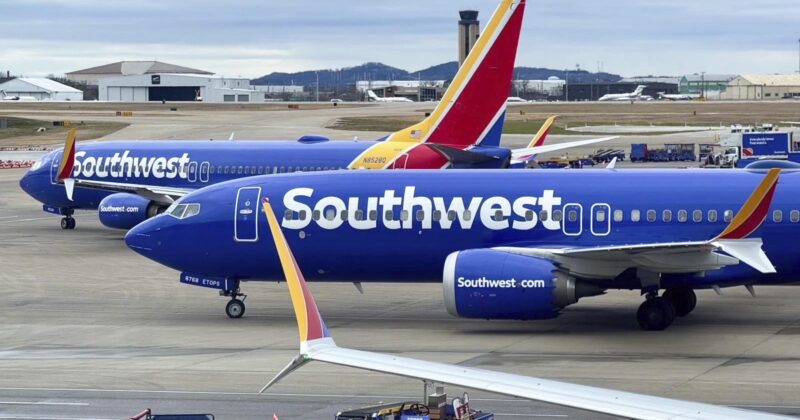Southwest Airlines is implementing a surprising new restriction on portable chargers to keep these notoriously incendiary devices from bursting into flame mid-flight.
Starting May 28, passengers will be required to keep their power banks in plain sight, making the budget carrier the first to roll out a policy of this kind.
“Using portable charging devices while stored in a bag or overhead bin will no longer be permitted,” a Southwest spokesperson told Business Insider. “Nothing is more important to Southwest than the safety of its customers and employees.”
The airlines will, however, allow passengers to keep the devices in their carry-on bags when not in use.
The logic is that the portable phone juicers run on lithium-ion batteries that can overheat and ignite, so keeping them in plain sight allows flight attendants to identify and extinguish the hazard before it’s too late.
“In the rare event a lithium battery overheats or catches fire, quick access is critical and keeping power banks in plain sight allows for faster intervention and helps protect everyone onboard,” a Southwest rep said, according to Fortune.
In March, passengers flying from Malaysia to Thailand were thrown into a panic after a power bank ignited in the overhead bin and filled the cabin with smoke right before landing.
While Southwest has not implemented the policy yet, passengers have been receiving notifications via the airline’s app warning them to keep the chargers out of their bags and “in plain sight” and to refrain from putting them in the luggage compartments, per a viral Reddit post.
This policy comes amid an annual uptick in incidents of power banks catching fire in-flight.
According to Federal Aviation Administration statistics, there have already been 19 incidents involving batteries in 2025, while last year there were a record 89 charger-related issues.
Although still a relatively low risk when factoring in the approximately 180,000 flights US airlines operate each week, air carriers have been ramping up restrictions on the blaze-inducing battery boosters.
Korean Airlines recently prohibited passengers from storing chargers in overhead bins, requiring them to instead keep the devices in plastic bags or cover their ports with insulation tape to prevent them from touching metal.
This policy was implemented in response to a devastating inferno that injured seven passengers aboard an Air Busan plane in January, although it’s unclear if the flames were caused by a battery.
Meanwhile, Singapore Airlines and Thai Airways now ban the use of portable chargers during flights, while Australia’s Qantas Airlines requires that they be stored in carry-on luggage only.
And it’s not just airlines that are tightening controls over these inadvertent explosive devices.
The Transportation Security Administration just banned lithium-battery-powered portable chargers from checked luggage following a new advisory from the FAA.
“When a carry-on bag is checked at the gate or at planeside, all spare lithium batteries and power banks must be removed from the bag and kept with the passenger in the aircraft cabin,” the FAA wrote. “The battery terminals must be protected from short circuit[ing].”


Sensible safety precaution.